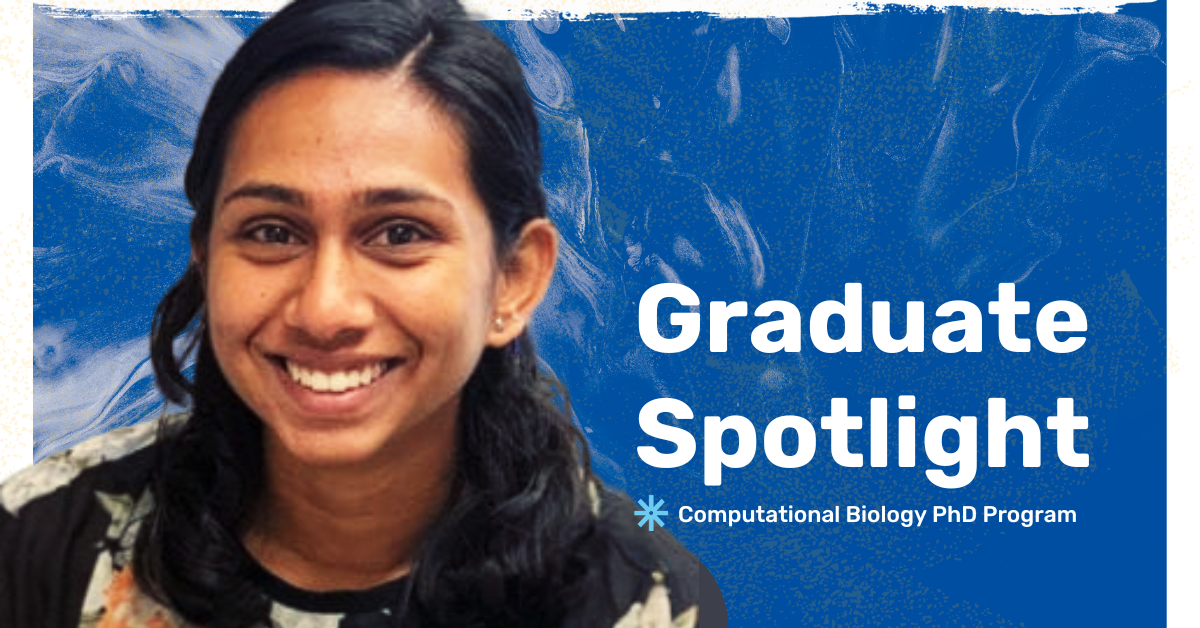Neha Cheemalavagu has swapped her textbooks for a cap and gown! Cheemalavagu, a student in the Joint Carnegie Mellon-University of Pittsburgh PhD Program in Computational Biology (CPCB), has earned her diploma.
Her PhD research focused on understanding the immune system using mechanistic modeling and machine learning. Cheemalavagu’s dissertation defense is titled “Predicting gene level sensitivity to signaling perturbation using computational modeling approaches.”
She said the math and computer science classes she completed as an undergraduate student influenced her decision to transition away from wet lab science to computational research for graduate school.
“I felt like there were more ways to answer some of the research questions I was encountering during my undergrad,” Cheemalavagu said. “A computational biology PhD seemed like a good fit for the kind of work that I wanted to do.”
Her favorite part of the CPCB program was the supportive environment of principal investigators, advisors and classmates who encouraged her progress. Rachel Gottschalk, assistant professor in the Department of Immunology, was her advisor.
“Rachel is the reason I’m capable of doing what I can now and have the confidence to do it,” she said. “She’s the person I go to if I’m not sure if I’m making the right decisions or asking the right questions.”
She also appreciated the CPCB class offerings that strengthened her skillset in different modeling approaches. Machine learning was the class she enjoyed the most because it gave her the confidence to do more theory-driven work.
“I think that class helped me think about things in so many ways and be more creative in my research process,” she said.
Outside of classes, she made lifelong connections with her cohort. Her favorite memory from the program occurred during the quarantine era of the pandemic. She and her classmates decided to play Jackbox Games online together even though they couldn’t see each other in person.
“We ended up just talking on Zoom for multiple hours after we finished playing the games,” she said. “It doesn’t seem like a big moment, but it just helped me realize that these are some people that I’ve shared so much with over the years and that I’ve gotten so close to.”
Now that Cheemalavagu has graduated, she’s looking forward to landing her dream career and exploring new cities. Her dream job would involve connecting her knowledge of machine learning to the immune system. She is excited to work in the immune cell signaling space and apply her computational skillset to the field of medicine.
“Eventually, we want to get to the point in medicine where you can target something in an immune signaling pathway and treat diseases without having off-target effects,” she said.
We wish Cheemalavagu the best of luck in the next stage of her journey!
Update: 5.24.24


